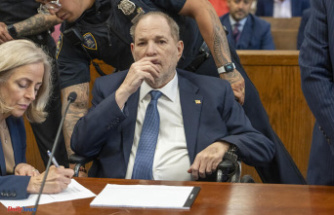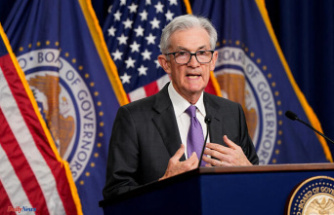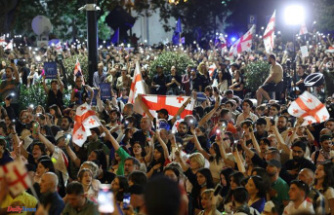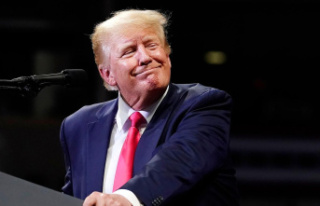After signing an agreement to export millions of tons of Ukrainian grain across the Black Sea, the Ukrainian government has expressed skepticism about the reliability of Russia's commitments. "I'm not opening a champagne bottle because of the agreement," Foreign Minister Dmytro Kuleba told the AP news agency in Kyiv on Friday. "I'm keeping my fingers crossed that it works, ships bring grain to world markets and prices go down and people have food. But I'm very cautious because I don't trust Russia."
In his video address that evening, President Volodymyr Zelenskyy also expressed doubts as to whether Russia should be trusted. "It is clear to everyone that there could be provocations from Russia, attempts to discredit Ukrainian and international efforts," he said. "But we trust the UN."
Russia and Ukraine had previously signed separate agreements with the United Nations and Turkey that would allow 22 million tons of grain to be exported from blocked Ukrainian Black Sea ports.
The African Union (AU) has welcomed the agreement on grain supplies between Russia and Ukraine. The agreement is a "welcome development" for Africa, the AU said on Saturday. The African continent has been particularly hard hit by the sluggish deliveries caused by the Ukraine war. Many African countries import more than half of their wheat from Russia or Ukraine. The UN had therefore warned of massive famines.
Federal Foreign Minister Annalena Baerbock (Greens) does not rule out extending the service life of the three remaining German nuclear power plants, even if she herself remains skeptical. The Green politician said in an interview with "Bild" on Friday evening: "We are now in an emergency situation where we are looking at everything again."
At the same time, she warned against the frivolous continued use of nuclear power beyond 2022: "It was not without reason that we abandoned nuclear power in Germany." In such difficult decision-making processes, it is always important that every step is based on facts. That is why Economics Minister Robert Habeck is currently examining the situation in a second stress test. “We are waiting for the results.” Based on the facts that are now known to her, she does not think that the continued operation of the German nuclear reactors is “the right step”. The challenge is the gas supply. "And that's why nuclear power isn't the answer."
The US has released another $270 million worth of military aid to Ukraine. Among other things, four new rocket launchers of the type Himars, up to 580 drones of the type Phoenix Ghosts and 36,000 rounds of artillery ammunition are to be delivered, as the US Department of Defense announced on Friday. The new pack also includes four vehicles that can be used as command posts.
This brings the number of Himars rocket launchers sent to Ukraine to 20. Ukraine says the multiple rocket launchers, which can fire at targets up to 80 kilometers away, are crucial in the fight against Russia. Drones also play an important role for the Ukrainian armed forces. The Phoenix Ghosts drones are small, portable and detonated at their target location.
Federal Finance Minister Christian Lindner (FDP) strictly rejects further financing of the nine-euro ticket or a follow-up offer. "The 9-euro ticket is a temporary measure, just like the tank discount," Lindner told the newspapers of the Funke media group on Saturday. "Therefore, neither a continuation of the tank discount nor funds for a follow-up regulation for the 9-euro ticket are planned in the federal budget."
Lindner criticized that when the nine-euro ticket expires at the end of August, taxpayers would finance a non-cost-covering offer in local public transport. "Even those who cannot use the offer even in rural areas pay with it." The concept does not convince him. "In any case, the federal government could not pay for it, since the debt brake must be complied with again in 2023."
The rating agency Fitch pushes its rating for Ukraine's creditworthiness even deeper into the junk zone. Fitch announced that the credit rating would be downgraded by two notches to “C” from the previous “CCC”. This is the lowest rating for risky investments. In the case of C categories, a partial or even complete payment default can be assumed. Earlier, Ukraine had asked for a suspension of debt service and an extension of payment terms.
Ukraine has about $10 billion worth of grain that it can sell under the agreement with Russia on unloading supplies. Around 20 million tons of last year's harvest would be exported after the conclusion of the agreement, says President Volodymyr Zelenskyj. There should also be an opportunity to sell the current harvest. "This is another proof that Ukraine can withstand war."












